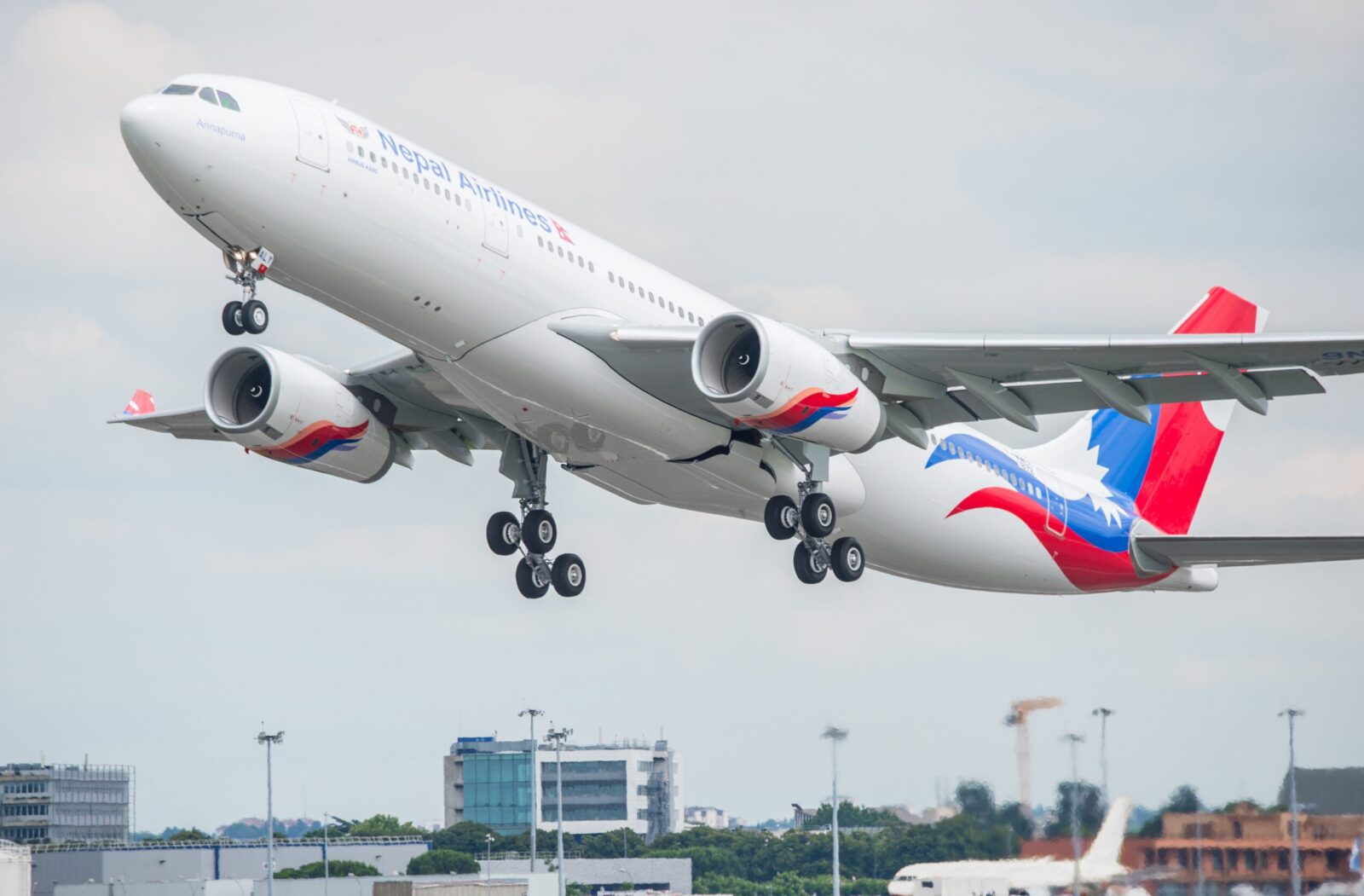
Nepal Airlines has come under fire after a scheduled flight from Kathmandu to Dubai departed two hours earlier than planned because the country’s Prime Minister Pushpa Kamal Dahal was onboard, leaving around 31 passengers behind because they showed up at the airport after the plane had already taken off.
Dahal was travelling to Dubai with his entourage to attend the COP28 climate change summit that is being hosted in the emirate, although it remains unclear why the Nepalese flag carrier needed to bring the departure time forward by two hours.
Nepal Airlines flight RA229 is normally scheduled to depart Kathmandu at 11:30 pm for the nearly five-hour flight to Dubai, landing at around 3 am local time. On Wednesday, however, the Airbus A330 departed just after 9:30 pm and arrived in Dubai at 1 am.
In a statement, the airline said it didn’t make it public that the flight was going to depart two hours earlier than planned due to the VVIP delegation onboard, but a spokesperson said the carrier had tried to contact all the booked passengers a day before to personally let them know about the new departure time.
On Facebook, Nepal Airlines said it tried to phone and email affected passengers, as well as make travel agents aware of the new departure time, but it seems that not all of the 274 passengers booked on the flight were contacted.
The airline says it put the stranded passengers up in hotels and has arranged for them to be flown to Dubai on alternative flights.
Airlines could come under increased pressure to speed up sustainability initiatives during the nearly two-week-long climate summit in Dubai. The European Union is to lobby for an international tax on aviation fuel in a bid to specifically fund climate initiatives.
Regular kerosene is currently tax-exempt, but the EU would like to see a relatively small charge applied per flight. The aviation industry has set an ambitious goal to achieve carbon neutrality by 2050, and along with new aircraft that are much more fuel efficient, airlines are heavily reliant on progress being made on Sustainable Aviation Fuel (SAF) to achieve this goal.
Made out of waste by-products from cooking oil and waste, SAF has the potential to slash carbon emissions, but production is expensive and currently only meets a tiny fraction of the potential demand.
Earlier this week, Virgin Atlantic operated the first transatlantic flight of a commercial passenger plane using only SAF. The flight, which needed special approval, is aimed at demonstrating that flights can safely fly with SAF fuel.
Although an increasing number of airlines are incorporating SAF into some of their flights, at present, SAF can currently be used in jet engines to a maximum blend of 50%.
Related
Mateusz Maszczynski honed his skills as an international flight attendant at the most prominent airline in the Middle East and has been flying ever since... most recently for a well known European airline. Matt is passionate about the aviation industry and has become an expert in passenger experience and human-centric stories. Always keeping an ear close to the ground, Matt's industry insights, analysis and news coverage is frequently relied upon by some of the biggest names in journalism.







